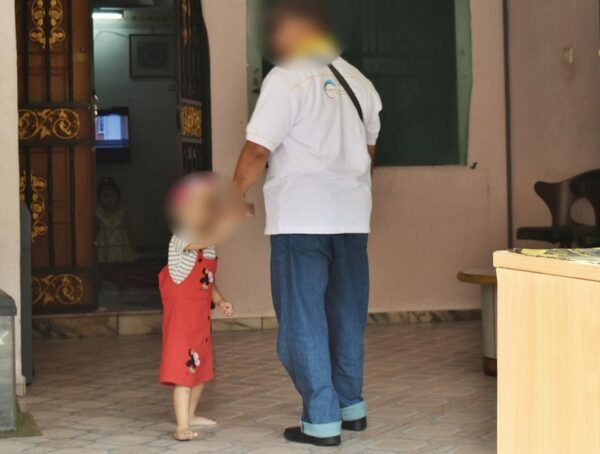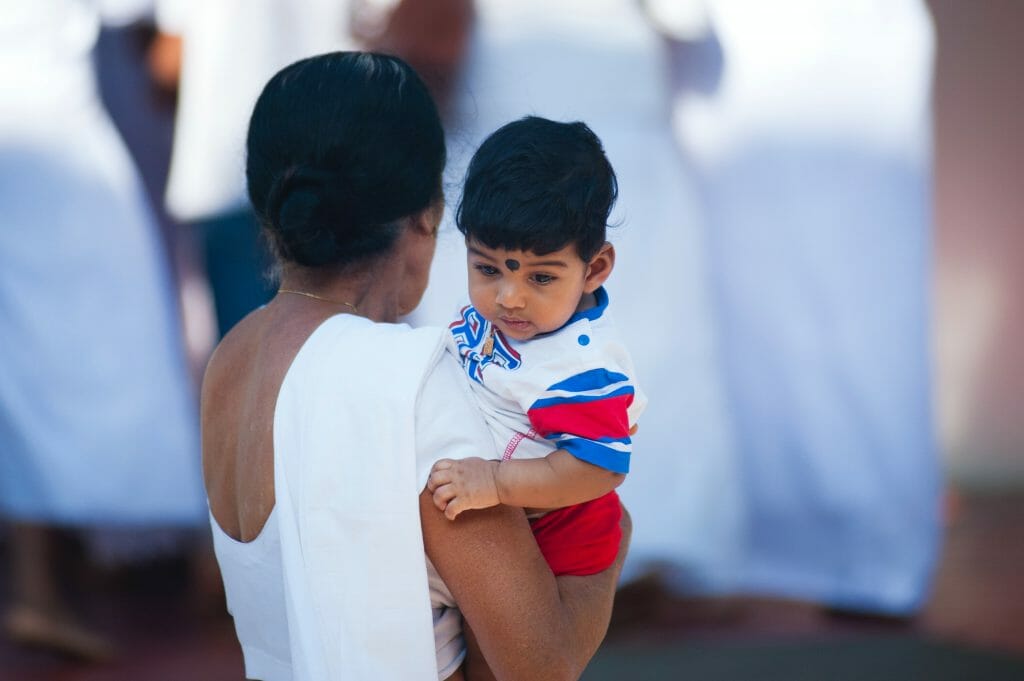
A grandmother holding her grandson.
Known for its tasty ‘kacang putih’ in broad varieties, Buntong has been home to the Indian community since the 1900s.
During British colonisation, they were brought to Ipoh for labour in rubber estates and railways.
After the British left, the Indian community stayed and grew, and now they make up the majority of Buntong’s population.
Yet today, the community is still classified as a B40 income group despite being here for over 100 years. That’s where Lenna and her colleagues step in.
Social worker Lenna Stephen wants to make a difference
25-year-old Lenna Stephen had always been curious about the unique behaviour of humans.
What happens in between childhood and adulthood to make people who they are? How can humans be so different, even if they grew up together?
Having studied psychology at Universiti Tunku Abdul Rahman, she landed herself a job as a social worker at Good Shepard Services, an ipoh-based NGO.

Lenna on the day of her convocation
Lenna’s day-to-day life as a social worker.
Lenna regularly visits families all around the Buntong neighbourhood to check on them. Currently, she has 25 on her list.
Her approachable and friendly nature allows women to open up to her.
That is how Lenna identifies children who struggle with abuse and violence at home.
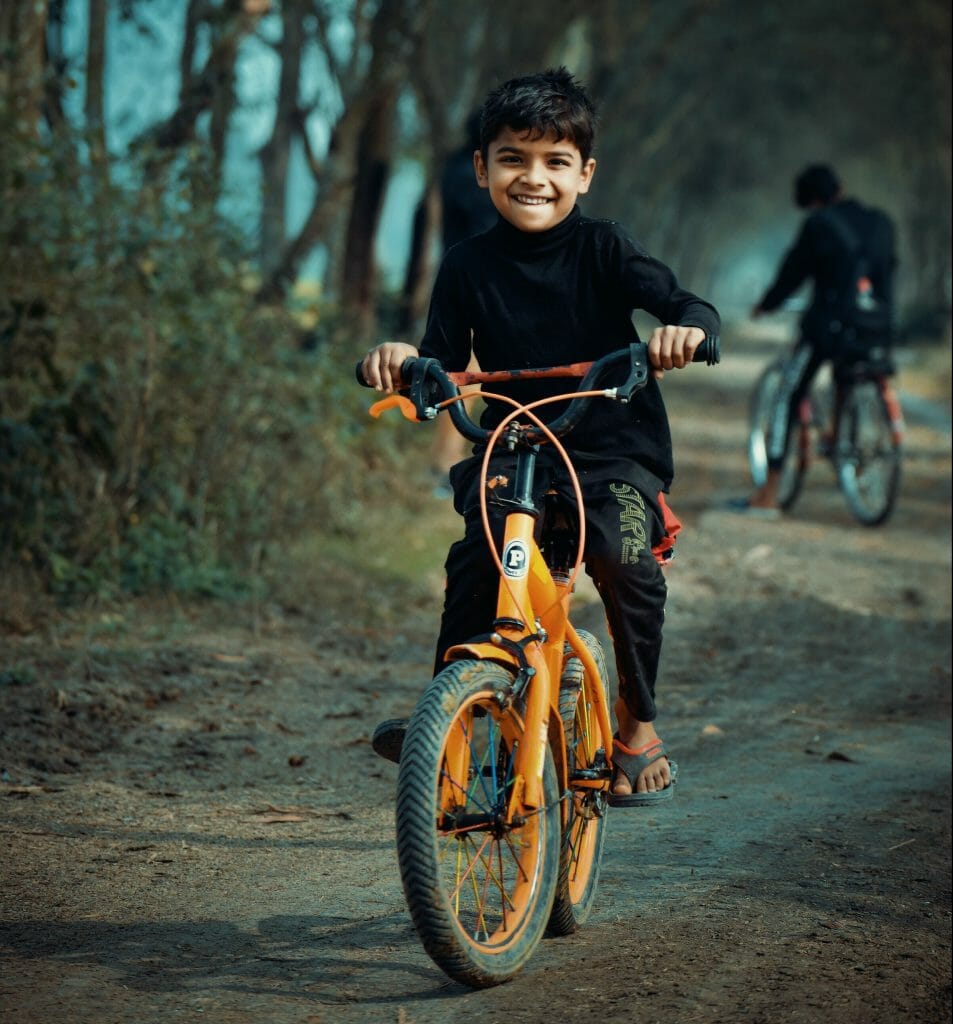
A boy looking jovial while riding a bicycle.
Since the lockdown on the 18th of March, schools were closed. Lenna has been unable to reach out to the children she has been forming relationships with.
“Our advocacy, safeguarding and other school programs are halted right now,” said Lenna.
She is worried for their wellbeing. “Are they truly all right at home?” She wondered.
A recent rise in domestic violence cases
Following the recent statement from the Prime Minister, the unemployment rate is likely to rise to 5.5% within the next few months.
Countless numbers of adults have lost their source of income ever since the lockdown was put in place.
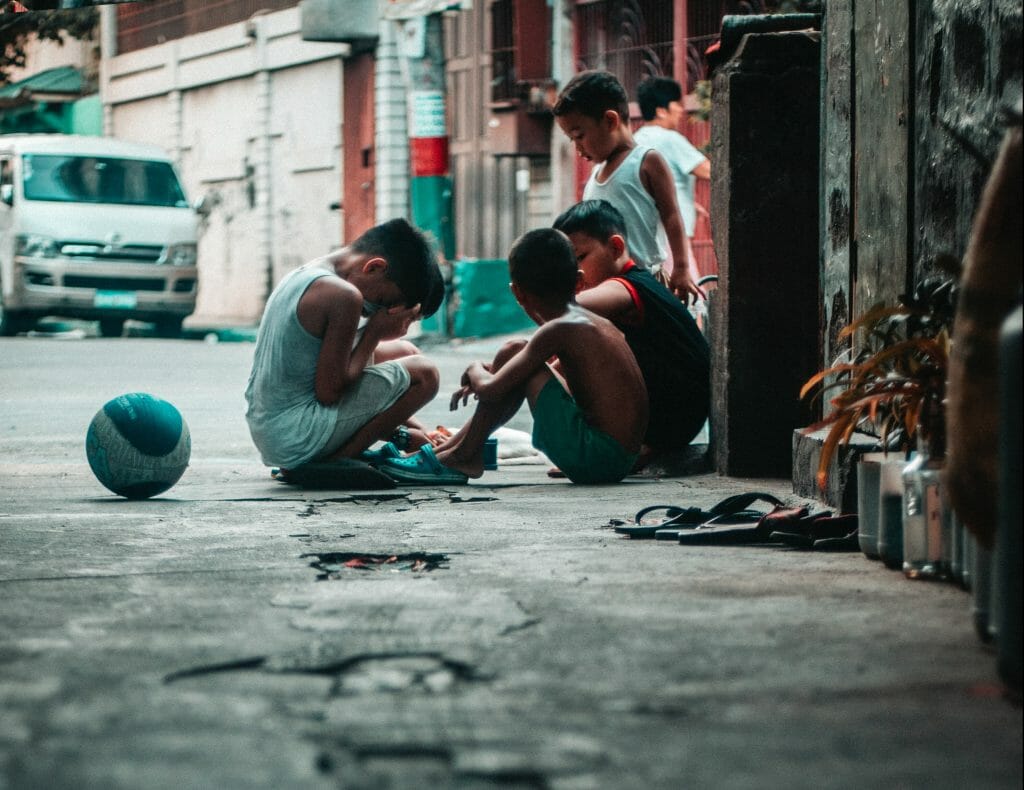
Children playing in an alley
According to reports from fellow counsellors, there has been a rise of domestic violence cases in the Buntong neighborhood.
In these neighborhoods, men are the sole breadwinners, bein cleaners, drivers and storekeepers.
Some of the husbands forbid their wives from going to work, despite their financial challenges.
These traditional gender roles often lead to an imbalanced power dynamic between husband and wife. Stuck at home with the abuser the entire day, victims likely face beatings and verbal abuse with no relief.
Previously, school was their only outlet to get away from abusive homes.
Not all men are abusers, but they do happen often enough that Lenna and her colleagues make it a priority to check up on the cases they know exist.
Lenna makes phone calls, but even she can’t tell how bad it gets.
Before the lockdown, Lenna and her colleagues could visit each house and have a one-on-one chat with the women while watching over the children at home.
Now, Lenna has to resort to phone calls to stay in touch with some 20 families around Buntong.
Unfortunately, getting her respondents to open up about taboo topics like abuse and violence, while the possible abuser is in the room with them, is tough.
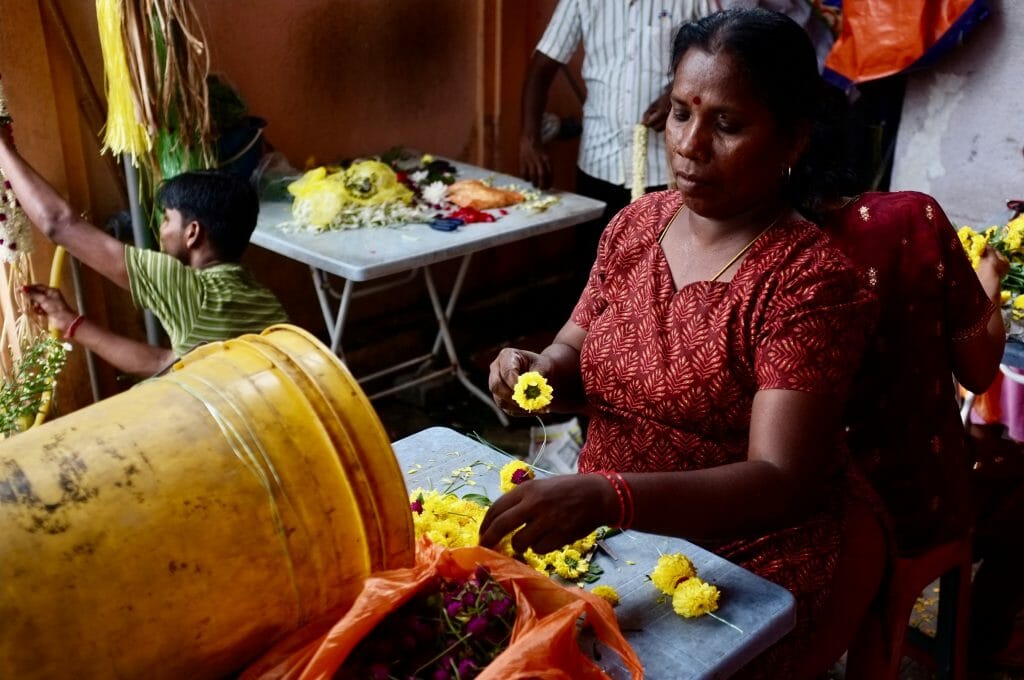
A lady working on a flower garland.
Teaching and learning practices have shifted online.
With the absence of electronic devices and access to the internet, many school-going children in Buntong are falling behind because they lack the access to technology at home.
But Lenna hasn’t given up.
Aside from her duties, she helps print out and deliver schoolwork to these kids. Recently, she helped B40 families apply for the ‘Prihatin Rakyat Stimulus Package’ offered by the government.
Also, corporations have reached out to offer mobile phones that come with internet access to help these children.
The YTL foundation offered mobile phones to B40 families with children in government schools that do not own smartphones or other smart devices. (You can nominate a B40 student here.)
But Lenna believes there is more to be done.
Playing our part as a society
Malaysians pride ourselves in the rich culture and diversity, but in reality, we are in denial of the discrimination we impose onto one another.
There’s no need to sweep that under the rug.
The more fortunate and privileged in the country are in power in a social hierarchy. They tend to sideline the marginalised, pushing them to the edge, with the narrative of ‘not my responsibility’.
At a time of crisis, although financial aid is given to the general public, these are short term solutions.
Changing the root of the inequality requires us to take a good hard look at the systems that cause it in the first place.
Stereotypes were made up by a few bad apples, but that doesn’t have to be the reality moving forward.
A lot of times, society blames a minority group for violent crimes, making it a struggle for the lot to get better jobs and opportunities.
Poverty, rooted from the lack of access to education way back in the 1800s, still persists today.
Quotas in local public universities and discrimination in job hiring practices continue to rob chances for deserving hardworking individuals to lead better lives.
And so the cycle of poverty continues.
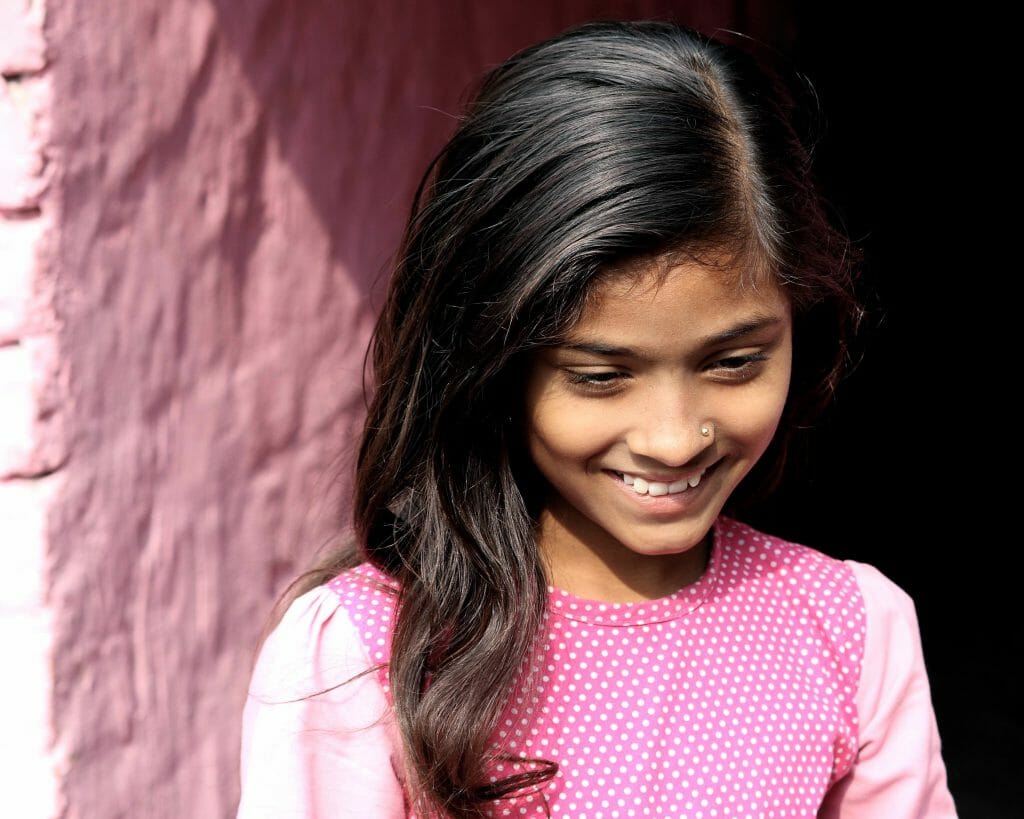
Lenna’s only hope is that the families she cares for will gain full liberty and independence of their lives.
“I wish everyone could be accepted without prejudice or bigotry, and may everyone’s voices be heard.”
We gain much more from helping one another
In this rapidly changing world, we have to sometimes pause and look around. There are many needy people who are just an arm’s reach.
We don’t lose ourselves in helping out another. In fact, we gain so much more.
As a society, we could provide a safety net for others to have the opportunity to build themselves a better life.
And when they are given the opportunity to flourish, the quality of life improves for everyone else too.
“If you find someone to be a little different, don’t push them away. Instead, try to understand them and get them to walk along with you,” says Lenna.
For more stories like this, read: The Story of a Young Immigrant Housewife in Malaysia and I’m A Rohingya Who Lived In Malaysia For 20 Years — Here’s What We Really Want From Malaysia.

You might also like
More from Real People
‘A RM100 fee cost a company 5 years of revenue’ shares M’sian
This story is about a Malaysian who learned that bureaucracy can be defeated simply by not arguing with it.A billing …
‘I quiet-quit, upskilled, and tripled my salary,’ shares M’sian engineer
This story is about a Malaysian who learned that loyalty without leverage leads nowhere in the corporate world.After years of …
‘I did everything right, and it still wasn’t enough’ shares M’sian graduate
This story is about a Malaysian graduate navigating big dreams in a job market where a degree no longer guarantees …






